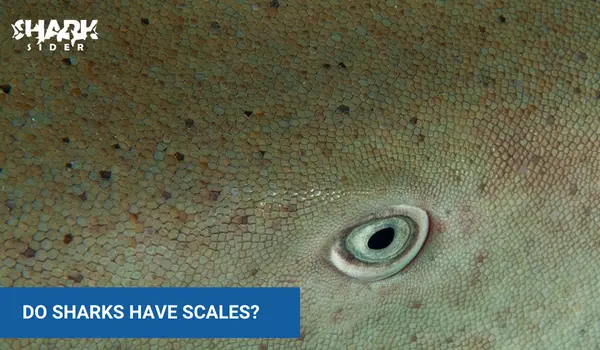Sharks are some of the most remarkable creatures in the ocean, with a long and diverse evolutionary history that has allowed them to survive in some of the harshest environments on the planet. One of their most striking features is their scales, or dermal denticles, which provide protection and streamline their movement through the water. But do all sharks have these scales, and what exactly are they?
In this blog post, we’ll explore the fascinating world of shark skin, from the microscopic structures that make up their scales to the important role they play in keeping these predators at the top of the food chain. So, do sharks have scales? Let’s find out.
Does a shark have scales?
Yes, sharks do have scales. In fact, all shark species possess dermal denticles or “skin teeth” as they are sometimes referred to. Shark skin is made up of a unique type of scale called placoid scales, which are also known as “denticles”. These small spiny structures vary in shape and size among different species of shark.
Placoid scales in sharks
Placoid scales are made up of an upper pointed part, known as the “cusp”, and a lower flat part called the “base”. The cusp is constructed from dentine with an enamel-like layer on top that helps protect the shark from physical damage. The lower base portion is made up of a fibrous material called “cementum” which helps the scales adhere to the skin. Sharks that live in deeper water will have more denticles to help them resist the pressure from greater depths.
Why do sharks have scales?

The purpose of shark scales is two-fold. First, their dermal denticles act as a form of armor for the shark’s body, protecting them from other animals and objects in the water. Along with providing protection, the scales also help to reduce drag when sharks swim near the surface of the ocean. This allows them to move through the water more efficiently. The scales also provide a unique, streamlined appearance when they are viewed from above.
In addition to providing protection and aiding in swimming, the texture of shark skin also acts as an anti-predator mechanism. Sharks with rough denticles are less likely to be eaten by larger predators since it is uncomfortable for them to bite into the rough skin. This helps to keep sharks safe from becoming prey themselves.
Do all sharks have scales?
Yes, all sharks possess dermal denticles or “skin teeth” as they are sometimes referred to. The size, shape, and number of scales vary between species, but all sharks have some type of placoid scale.
Can shark scales cut you?
Shark scales are not sharp enough to cut human skin, however, they can cause irritation or bruising if you brush against them. The scales may also become entangled in clothing or other items which could result in a scratch or bruise. To avoid any discomfort it is best to keep your distance from sharks and swim with caution.
Conclusion
Shark scales are an important part of their anatomy that helps them to survive and thrive in the ocean. The dermal denticles provide a protective armor for their body and also help them to reduce drag in the water. Sharks with rougher scales are less likely to be eaten by larger predators, and their scales can also cause irritation when they come into contact with humans. No matter the species, all sharks have some type of placoid scale, making them quite impressive predators.

